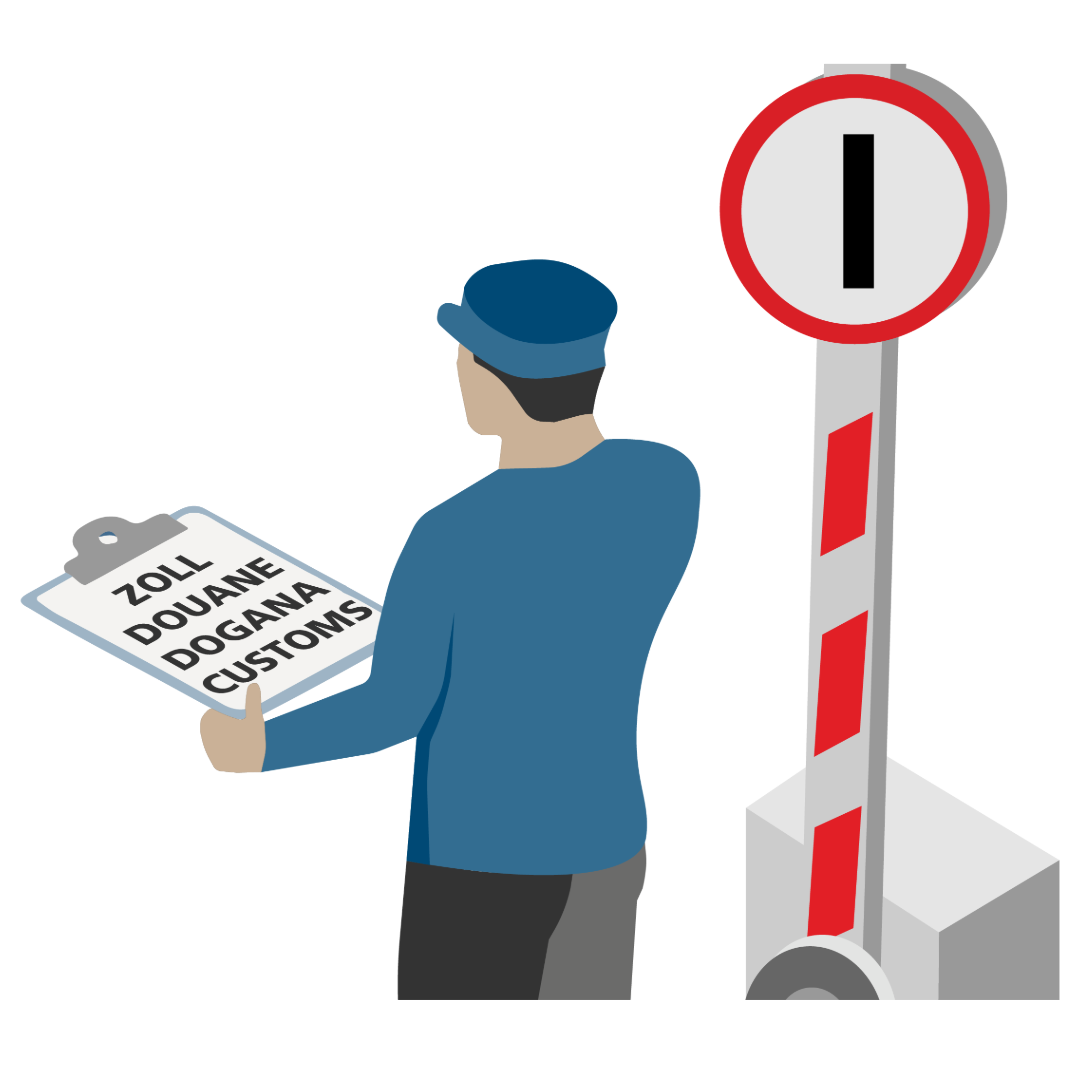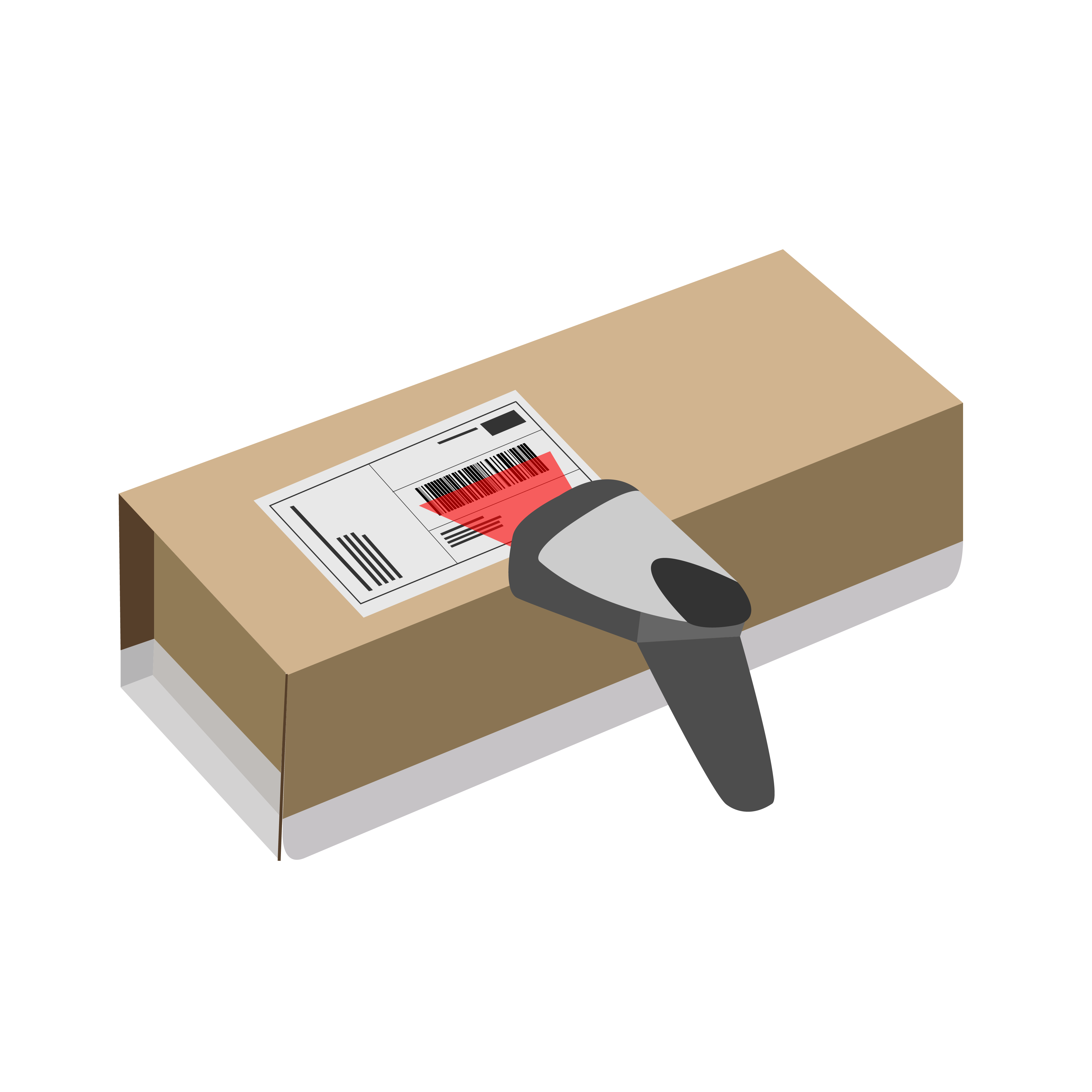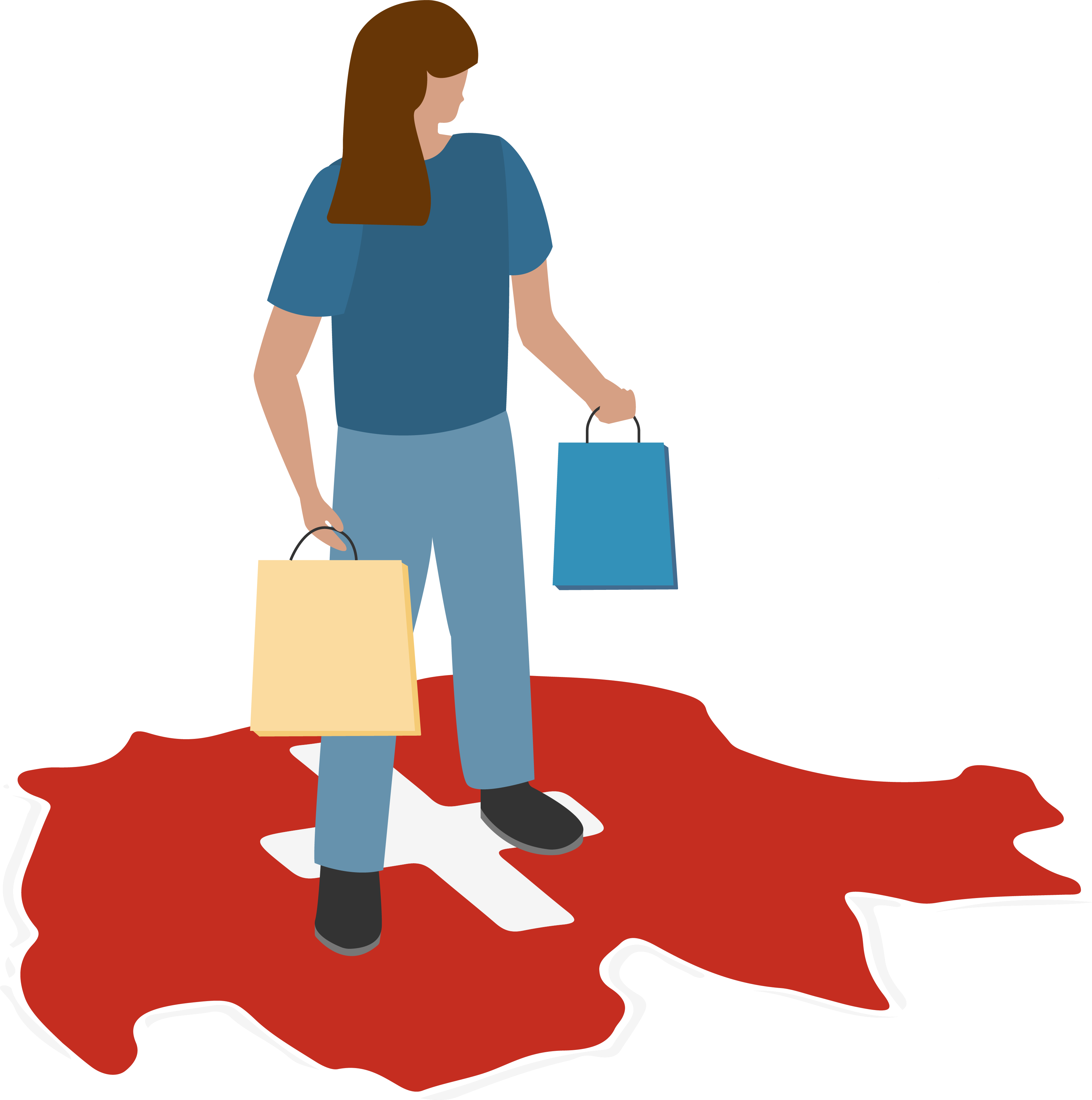The elimination of industrial tariffs from 2024 will boost cross-border e-commerce in Switzerland

Background to the abolition of industrial tariffs
The abolition of industrial tariffs is part of a comprehensive plan to increase Switzerland's competitiveness and to combat Switzerland’s status as a “high-price island”. The industrial tariffs that were previously levied on industrial products will be abolished from 1 January 2024. In Switzerland, all goods are considered industrial products with the exception of agricultural products (including animal feed) and fishery products, which are excluded from this abolition.

The intention behind this measure is to benefit both companies and consumers equally and to increase Switzerland’s competitiveness. In addition to the abolition of industrial tariffs, there are also plans to simplify the tariff structure for industrial products.
It is important to emphasize that the abolition of industrial tariffs from 1 January 2024 does not yet involve any changes in the customs clearance process. The new customs law may, however, include simplifications to the customs clearance process, which we will inform you about as soon as official information is available.
Pro Tip
As a non-EU country, Switzerland has to contend with some obstacles concerning cross-border e-commerce. For this reason, it makes sense to learn about the customs clearance processes for shipping to Switzerland. Click here for a simple explanation of how customs clearance works for shipments to Switzerland
Pro Tip
As a non-EU country, Switzerland has to contend with some obstacles concerning cross-border e-commerce. For this reason, it makes sense to learn about the customs clearance processes for shipping to Switzerland. Click here for a simple explanation of how customs clearance works for shipments to Switzerland
A new era for Swiss online retail
Import duties currently apply to certain goods imported into Switzerland. These duties vary depending on the product (determined by the customs tariff number), the weight of the product (Switzerland charges weight duties, not ad valorem duties) and the country of origin. Textiles in particular are currently subject to comparatively high import duties.
From 2024, these import duties on industrial products will no longer apply, and it will no longer be necessary to provide evidence of the origin of the products. The date of import into Switzerland is decisive for the new procedure.
However, exceptions apply to all products that are re-exported from Switzerland. International e-commerce returns in particular lose their preferential status without proof of origin. We therefore recommend that you continue to provide proof of origin if your goods can be returned.
Furthermore, information such as the customs tariff number and the weight of the product must still be recorded. Other taxes such as VAT (also known as import tax) remain unchanged:
Changes in relation to various elements at a glance:
- Abolition of industrial tariffs from 2024: Industrial products are no longer subject to import duties.
- Simplified tariff structure: the customs tariff numbers for industrial products are reduced from 9114 to 7511.
- Retention of VAT: VAT will continue to be charged. However, VAT rates will change as of 1 January 2024.
Impact on internationally active online retailers
Industrial tariffs were originally introduced to protect Swiss companies from foreign competition. However, they are now perceived as burdensome, because they involve costs and administrative effort.
For Swiss retailers, the elimination of industrial tariffs generally means lower costs when importing goods. In a functioning competitive environment, this can result in lower prices for consumers. Depending on the product group, the elimination of industrial tariffs can have varying effects. Particularly for textiles, where higher tariff rates are currently applied, imports are becoming cheaper.
How can you optimize your shipping costs? Six more ways to save when shipping to Switzerland
From the beginning of next year, individual customs clearance will no longer offer the same advantages as in the past, depending on sales and product portfolio. As customs duties will no longer be applied to industrial products, customs exemption limits on industrial products such as textiles can be disregarded in the future. As a result, a solution such as collective customs clearance could also be an attractive option. For time-critical shipments, however, collective customs clearance can have its disadvantages. During a customs review, the entire delivery will be delayed, whereas when using individual customs clearance, only one parcel will be affected by the delay. If you are importing agricultural and fishery products, you can still benefit from individual customs clearance. It is therefore worth taking advice from our experts to find the optimal set-up for your import into Switzerland.
What does “simplifying the customs tariff structure” mean for me as an online retailer?
Because a detailed subdivision for the differentiated customs collection will no longer be necessary from 1 January 2024 (please see exceptions below), customs tariff numbers will be reduced from 9114 to 7511.
A more specific example: if leather children’s shoes were classified before 2024 with the number 6403.5910 and a customs rate of 173 francs per 100 kg gross, the rate will be reduced to zero, and the customs tariff number 6403.5900 will be combined with others.
If you are already using our customs clearance solution in Switzerland, you can still transmit the previously valid eight-digit customs tariff numbers. For online retailers who want to ship to Switzerland from 1 January 2024, the change in the law means that they must use the revised customs tariff numbers (with the exception of agricultural products and fishery products). Important: as items are sometimes categorized differently in Switzerland, European customs tariff numbers (HS codes), for example, cannot be adopted in full.
You can use our customs clearance solution to send us the European customs tariff number, and we will automatically match it with the new Swiss customs tariff number in our system.
Exceptions: tariffs will continue to apply to some agricultural and fishery products. A total of around 20 customs tariff numbers are affected. These apply to animals, feed and food. You can find more details here.
Changes to VAT rates
In 2022, the Swiss electorate approved an increase in VAT rates, which will come into force on 1 January 2024. This could cause confusion, especially at the turn of the year 2023/2024. But don’t worry – we will explain which tax rates apply when, and what needs to be taken into account when shipping around the turn of the year.
The following rules generally apply:
|
Valid tax rates from 1 January 2018 to 31 December 2023: Standard rate 7.7%, reduced tax rate 2.5%, special rate 3.7%. |
|
Valid tax rates from 1 January 2024: Standard rate 8.1%, reduced tax rate 2.6%, special rate 3.8%. |
In order to apply the correct VAT rates around the turn of the year, a differentiation must be made between the sales, shipping and import dates. A more specific use case can clarify this:

Assuming a Swiss customer orders gloves from your online shop on 29 December 2023 (time of sale) for their upcoming ski vacation in the Swiss mountains, the goods will be shipped from your warehouse in Germany on 30 December 2023 (time of shipping). The import into Switzerland will take place on 3 January 2024 (time of import), and the long-awaited parcel will be delivered to the recipient on 4 January 2024. What tax rates apply in this case?
According to Section 2.1 of VAT Info 19, the time of service provision (e.g. time at which delivery of the goods begins) is decisive for determining the tax rate. Section 3.5 of VAT Info 19 also states when the new tax rates apply to all imports, namely whether the import tax liability arises on 1 January 2024 or later.
If services are subject to both the old and the new tax rates due to the period in which they were provided, the date or period in which the service was provided and the relevant amount must be shown separately. Otherwise, all invoiced services must be billed using the new tax rates. The correct allocation of services can also be demonstrated in another way (Art. 81 para. 3 VATA).
In our example, the VAT indicated on the invoice would be subject to the old tax rate, but the goods would be imported with the new tax rate. When the import VAT is reclaimed, there is a difference of 0.4 percentage points, which means that the new tax rate was effectively paid. In our example, when VAT is reclaimed for a return, the amount paid upon import could then be reclaimed accordingly, with reference to the import.
We would like to point out that the correct handling of CH VAT is the responsibility of the service provider liable for tax. Our clarifications and information are therefore provided subject to any differing opinions from the responsible authorities.
Platform taxation
There will be further changes in international e-commerce in the future. The originally planned platform taxation has been postponed to 1 January 2025. As soon as we have new insights, we will share them with you.
The key points at a glance
- VAT rates in Switzerland will increase on 1 January 2024.
- Swiss industrial tariffs will fall on the same date.
- Exceptions apply to agricultural products, including animal feed and fishery products
- From 1 January 2024, proof of origin no longer needs to be provided, but we recommend that you still provide these for possible returns.
- Simplified tariff structure: the Swiss customs tariff numbers for industrial products will be reduced from 9114 to 7511.
- Customs clearance processes will not be simplified for the time being.
The abolition of industrial tariffs from 1 January 2024 will undoubtedly affect Swiss online retail. It is important that Swiss online retailers keep an eye on these changes and prepare for possible modifications to the customs clearance process. With the abolition of industrial tariffs, Switzerland will become an even more attractive market for internationally active online retailers. Read about why Switzerland is an attractive cross-border e-commerce destination at the heart of Europe here.
Individuelle Lösungen für einzigartige Bedürfnisse
Mit der persönlichen Beratung zum optimalen Versand- und Logistiksetup
Bei der Schweizerischen Post verstehen wir, dass jeder Markt seine eigenen, einzigartigen Herausforderungen hat. Deshalb sind wir hier, um Dich beim Export in die Schweiz oder beim Export aus der Schweiz zu unterstützen. Mit unserer umfassenden Erfahrung und unserem massgeschneiderten Ansatz finden wir gemeinsam die optimale Lösung für Dein Versand- und Logistik-Setup.
Warum einen Beratungstermin bei uns buchen?
-
Massgeschneiderte Lösungen
-
Umfassende Expertise
-
Einfacher Prozess
-
Vertrauenswürdiger Partner
Customised solutions for unique needs
Personalised advice for the optimal shipping and logistics setup
At Swiss Post, we understand that every market has its own unique challenges. That's why we're here to help you export to or from Switzerland. With our extensive experience and customised approach, together we will find the optimal solution for your shipping and logistics setup.
Why book a consultation with us?
- Customised solutions
- Comprehensive expertise
- Simple process
- Trusted partner
Des solutions personnalisées pour des besoins uniques
Un conseil personnalisé pour une configuration optimale de l'expédition et de la logistique
A la Poste Suisse, nous comprenons que chaque marché a ses propres défis uniques. C'est pourquoi nous sommes là pour vous aider à exporter vers la Suisse ou à exporter depuis la Suisse. Grâce à notre vaste expérience et à notre approche sur mesure, nous trouverons ensemble la solution optimale pour votre configuration d'expédition et de logistique.
Pourquoi réserver un rendez-vous de conseil avec nous ?
- Des solutions sur mesure
- Une expertise complète
- Processus simple
- Un partenaire de confiance
Soluzioni personalizzate per esigenze uniche
Consulenza personalizzata per l'impostazione ottimale della spedizione e della logistica
Noi della Posta Svizzera sappiamo che ogni mercato ha le sue sfide uniche. Ecco perché siamo qui per aiutarla ad esportare da o verso la Svizzera. Grazie alla nostra vasta esperienza e all'approccio personalizzato, insieme troveremo la soluzione ottimale per il suo setup di spedizione e logistica.
Perché prenotare una consulenza con noi?
- Soluzioni personalizzate
- Competenza completa
- Processo semplice
- Partner affidabile




